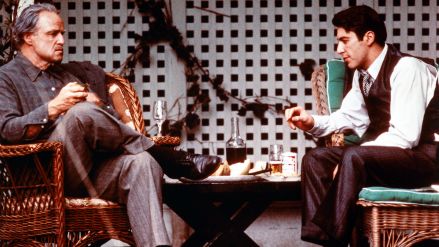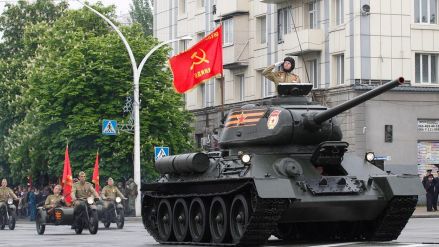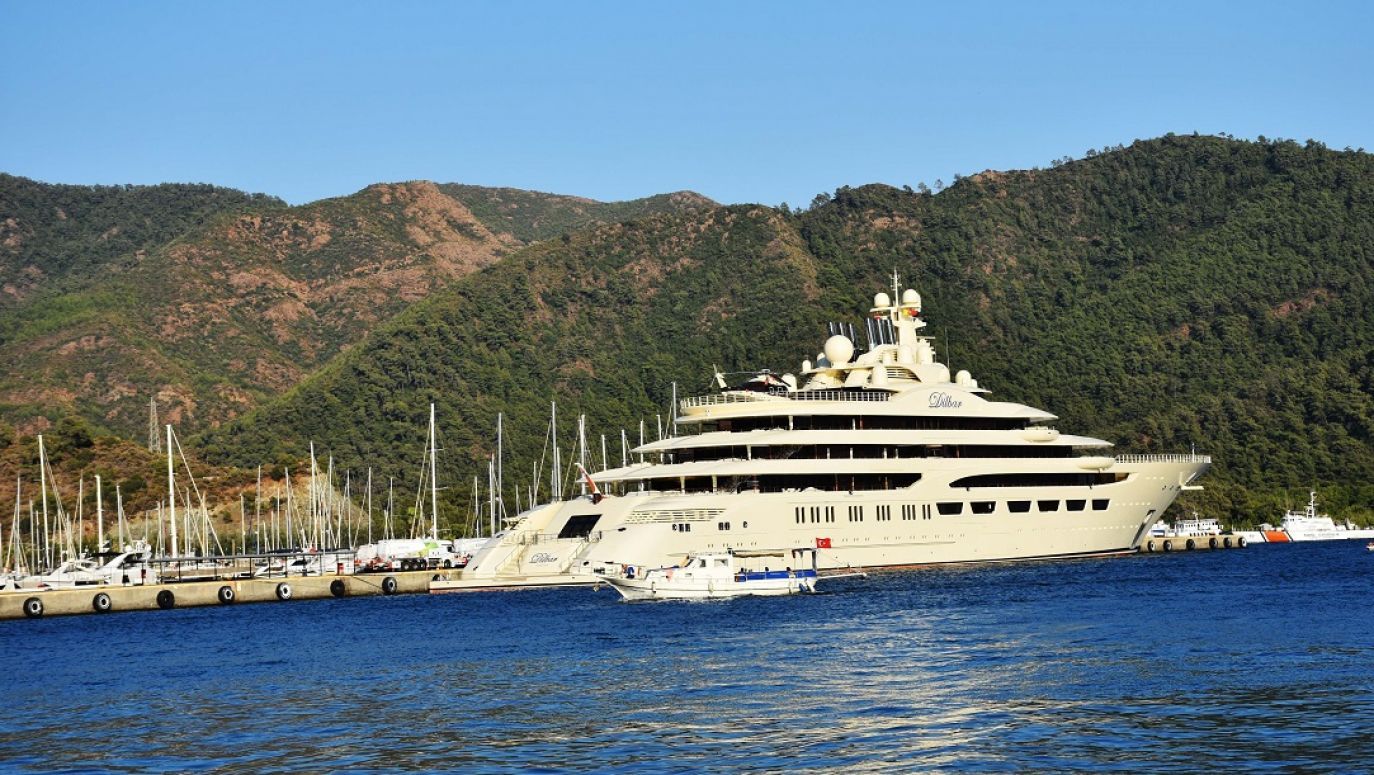How did the Russian oligarchs turn up in the UK? A golden opportunity of “golden visas”
16.03.2022
Many countries supplement their revenue quite handsomely by selling citizenships. Some years ago, Malta managed to balance its budget and avoid a deficit thanks to such practices. The scheme offers not only a capital injection, for a good start – just for granting citizenship – but also the prospect of future income in the form of investments or taxes.
“Roman Abramovich is the owner of Chelsea football club and various other high value assets in the United Kingdom. He’s a person of interest to the Home Office because of his links to the Russian state and his public association with corrupt activity and practices. Last week the prime minister said that Abramovich is facing sanctions. He later corrected the record to say that he isn’t. Well, why on earth isn’t he?” – asked an agitated Keir Starmer, Leader of the Labour Party, in the House of Commons, insisting that the UK “must stand up to Putin and the cronies who prop up his regime.”
There are plenty of Russian oligarchs and ordinary millionaires in Britain – ordinary millionaires being those who may be very rich, but not so rich that they can easily spend a hundred million pounds on a house (meaning: a castle or a palace), twice as much on a superyacht, and maybe a little more on buying a private island. None, however, arouses as much interest as Roman Abramovich.
Abramovich is one of Russia’s top billionaires, a former governor of Chukotka, the owner of “Eclipse” – which at the moment of its construction, ten years ago, was the largest yacht in the world (today it is third) – and, as Starmer reminded us, the owner of Chelsea Football Club, which for the British is perhaps the most important fact in all this.
When Russia invaded Ukraine, Abramovich, probably anticipating possible sanctions, announced that he wanted to step down and hand over the management of the club to the club’s charitable foundation. When the foundation dragged its feet on accepting the offer, he decided to sell Chelsea.
Londongrad under scrutiny
Such matters always attract attention, especially when they concern one of the best clubs, with war and big money in the background. Keir Starmer is not alone in wondering why Abramovich was not sanctioned, even though it is well known that he is a man from Vladimir Putin’s inner circle.
Moreover, he is not the only one to have been excluded from the sanctions list. For example, Alisher Usmanov was spared, who ranks even higher on the list of the rich, who is also associated with a football club (he had a stake in Arsenal and now in Everton), whose superyachts are small, but there are two of them, and who also lives in Britain. Both men have Russian citizenships, though Abramovich has also acquired Israeli and, more recently, Portuguese citizenship.
The Prime Minister, Boris Johnson, when asked by the Leader of the Opposition, replied evasively that he could not deal with individual cases and that 275 people had already been sanctioned. The list will be supplemented with new names, perhaps even as many as a hundred people, and he, as Prime Minister, will soon present comprehensive information to the parliament. And so neither the House of Commons nor the citizens have learned anything yet.
These questions and explanations are the obvious aftermath of the war in Ukraine, which, paradoxically, may be more conducive than anything else to scrutinising the activities of Russian oligarchs. Suspicions that many of them are multiplying their wealth in illegal ways (let’s leave aside the beginnings of such wealth, at the dawn of post-communist Russia, as this is probably not of interest to the British police) are nothing new. There have already been signs of this for some time, and sanctions have been imposed by the Americans on some oligarchs, such as Oleg Deripaska, who is accused, among other things, of intimidating competitors and bribing officials.
By and large, however, worrying signs were ignored in Britain. The money the oligarchs were investing effectively removed any suspicion that all was not well.
Why the United Kingdom? The Russian rich, while not cutting ties with Russia, have put down roots – privately and business-wise – all over Europe, from Portugal to Bulgaria and Finland. That said, most of them chose England. The posh areas of London where they bought houses and mansions were ironically nicknamed “Londongrad.” Many oligarchs took advantage of the so-called golden visas. To put it bluntly: they simply bought the residence permit.
Passport paradise
If there was a Nobel Prize for word-formation, whoever came up with the term “golden visa” would be a sure candidate. Why? Because he or she has given an attractive verbal form to what should be bluntly or even brutally called “citizenship for sale” or, on a more modest scale, “residence permit for sale.” A rather shady practice, sometimes associated with criminal shenanigans concerning the origin of the invested money, has been presented in a neat form endowed with positive connotations.
“Citizenship for sale” does not sound appealing. However, what is tempting – and very much so – is the big money the buyers have at their disposal. Who are they? Apart from Russian and Ukrainian oligarchs, they include Chinese, Indian and Pakistani Croesuses, Arab sheikhs and Gulf tycoons. What’s in it for them? A lot: they become citizens of a respected country and obtain a passport that opens the door to (almost) the whole world, giving them the possibility of visa-free travel. If their new homeland is a European Union country, they can move freely throughout the Schengen Area, which means virtually the whole of Europe.

Coppola's work carries an important warning: The "success" of a family can be the road to its disintegration.
see more
And what do countries gain? Money and investment. Many countries supplement their revenue quite handsomely by selling citizenships. Some years ago, Malta managed to balance its budget and avoid a deficit thanks to such practices. The scheme offers not only a capital injection, for a good start – just for granting citizenship – but also the prospect of future income in the form of investments or taxes.
In Europe, passport havens (not to be confused with tax havens, although they often overlap) are mainly two small countries in the Mediterranean – Malta and Cyprus. Both have many takers and so the whole procedure is worked out to the last detail. Bulgaria takes third place. These three countries are implementing a programme known as CBI – Citizenship by Investment.
Meanwhile, twelve European countries run an RBI programme – Residence by Investment. This group includes large and wealthy countries, such as, or perhaps most importantly, the United Kingdom. Its citizenship has additional advantages, apart from the abovementioned, as it provides a wide field for conducting business. The City of London is one of the financial centres of the world. There are various unconventional investment opportunities at that, for example, in excellent football clubs or respected media titles.
There is no shortage of other advantages, such as the ease with which children can be educated in reputable schools and the best universities, or the “not too bad”, let’s call it, housing options. Who wouldn’t want to live in a castle, surrounded by parkland, overlooking vast green spaces, just like in English films? History has been very kind to Britain, hence the offer of listed palaces, country residences and luxurious properties for sale in London is so large that the nouveau riche from far away really have something to choose from.
It is of course true that you do not have to be a British citizen to buy a castle. It is enough to have the necessary means. But it is a good practice to combine business with pleasure.
The Caribbean invention
Not surprisingly, the upper crust of Russia’s billionaires have taken a liking to Britain – apart from Roman Abramovich, they include Alisher Usmanov, Alexander Lebedev and his sons (including Yevgeny, with whom he jointly owns the Independent and Evening Standard newspapers), Mikhail Fridman and Vyacheslav Kantor, and the late Boris Bieriezovsky. Oleg Deripaska, who also applied for a British golden visa, was refused. In this situation, he chose Cyprus, where he joined a large group of Russian and Ukrainian oligarchs.
This is not surprising. Cyprus – its Greek part, to be precise – has, just like Greece itself, close ties and contacts with Russia, as a result of its history and common religion. Ordinary Russians are happy to come here and sometimes even stay.
Cyprus has been chosen by such Russian oligarchs as Dmitry Rybolovlev, owner of AS Monaco FC, and Viktor Vekselberg, as well as Ukrainian Igor Kolomoisky and Gennady Bogolubov, creators of Ukraine’s PrivatBank (both also hold Israeli citizenship).
How much does it cost? Not much. A candidate for Cypriot citizenship needs to invest just €2.000.000, which is unlikely to pose a problem, considering the multi-billion dollar fortunes of oligarchs from the East. There are no additional requirements and the waiting time for a passport is short – only three months from the time of application. It is cheaper in Malta, but you have to wait 12 months for a decision – which is probably a mere formality anyway. On the financial side, you are required to invest €675.000 and acquire a property for a minimum of €350.000.
Bulgaria is the cheapest. In order to become a citizen, it is enough to invest just €500.000. However, selling citizenship has not become an important source of income for the state, because, as representatives of the authorities reveal, there is little interest in the Bulgarian offer.
Each country selling residency permits has different rules. In the UK, a link is made between the amount of investment declared and the waiting time. Obviously, the more you invest, the shorter the wait. When a candidate is willing to invest £2 million in the British Isles, he can apply for a residence after five years. An amount of £5 million reduces the waiting time to three years, £10 million to two years.
The principles of the British RBI were invented in the 1990s, under Prime Minister John Major. However, it was not an original concept. The British, modifying it slightly, copied the idea of the authorities of Saint Kitts and Nevis, a tiny Caribbean state that had gained statehood in 1983, but had no source of revenue.
By putting their citizenship up for sale a year later, the authorities confirmed that necessity is the mother of invention. And this very invention was then eagerly used by others – first the Caribbean countries such as Barbados, Santa Lucia and Grenada, then Haiti after the earthquake, and finally the European countries. Today, in Saint Kitts and Nevis, the current rate is $150.000, in other countries it can be even less, but the final sum also depends on how big the buyer’s family is.
Too large a mesh
Bulgaria is an exception. In general, the whole business is very profitable and other countries, in Europe and beyond, are unlikely to complain. EU figures presented in mid-February show that between 2011 and 2019, countries using the CBI and RBI programmes earned a total of EUR 21.8 billion, issuing more than 130.000 golden visas. It is no coincidence that a new category of law firms has emerged, specialising in dealing with the formalities involved in obtaining the documents, easing the burden on resident and citizen candidates.
Passport rankings are also published, starting with “the strongest” – that is, those which give the greatest ease of movement around the world. According to the latest index by Henley, the most renowned law firm in these matters, Singapore’s passport gives the most freedom, as one can travel to 192 countries without a visa, followed by the passports of Germany and South Korea (190), then Finland, Italy, Luxembourg and Spain (189). Poland is in eighth place, together with Hungary (183), behind such EU countries as Austria, Sweden, Belgium and Greece.

The Molotov-Ribbentrop Pact is regarded in Ukraine as the cause of the Second War. This arouses Moscow's fury.
see more
So where do the concerns come from, if everything is going so smoothly? They have been raised for a long time, pointing out that candidates for citizenship are not vetted very carefully. The mesh is too large, because it is all about money. There have been words of warning that terrorist sponsors, such as Muslim millionaires who channel money to terrorist groups through Islamic banks and charities, can easily infiltrate Europe under the guise of applying for citizenship. Oligarchs have also been warned against, as many of them have been suspected, not without reason, of having close links with criminal groups.
Sometimes the authorities have refused. After all, the United Kingdom rejected Oleg Deripaska’s efforts. Perhaps this was only because his interests and suspicious contacts were investigated by the Americans and it was difficult to pretend that everything was all right. But this is an exception.
The British authorities welcomed rich Russians with open arms, and even more so their money. Of the 13 000 golden visas issued since 2008, nearly a fifth – 2581 to be exact – have gone to Russians.
And, paradoxically, the case of another Russian newcomer set off an alarm bell. He was Sergei Skripal, the ex-intelligence officer whom the Russian services tried to kill in the heart of England in the spring of 2018. Last year, for the first nine months, only 55 Russians received golden visas. But they won’t use them anyway. The golden visas are coming to an end – there will be no new ones, the government announced, and the old ones will be cancelled.
The Ukrainian war became the alarm bell number two. Or perhaps even a siren.
– Teresa Stylińska
– Translated by Jan Ziętara









